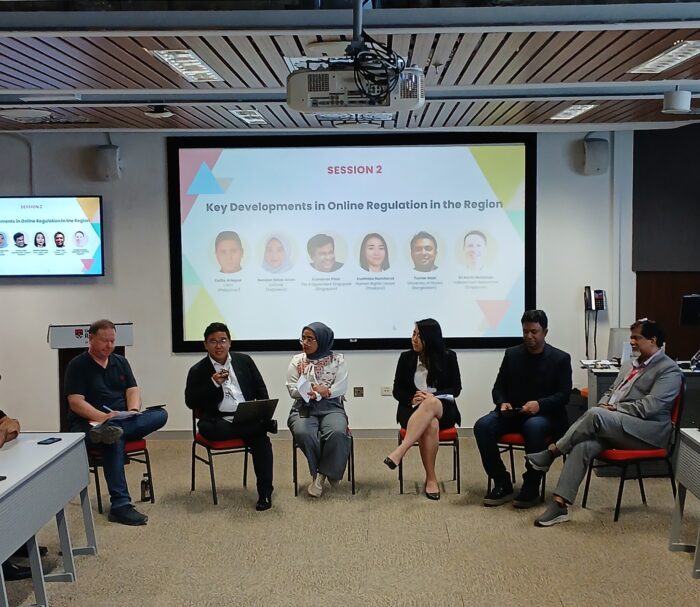
“How equipped are Civil Society Organizations (CSOs) in protecting human rights in the digital space?”
This was the overarching question that Asia Centre attempted to answer in its “Digital Rights Programme for Civil Society Organizations (CSOs): Regional End-of-Programme Meeting” held on 25-26 October 2024 in Johor Bahru, Malaysia.
CALD Executive Director Lito Arlegue attended the programme together with CSO representatives from Bangladesh, Cambodia, Indonesia, Japan, Malaysia, Nepal, Singapore, Sri Lanka, Taiwan, and Thailand. He spoke on key developments and trends in the region and how they impact on digital rights.
In his presentation, he noted three (3) trends of particular importance, drawing from the report of Digital Reach, an organization which looks at the impact of technology on human rights in Southeast Asia:
Apart from this, he also discussed the various digital tools used by electoral candidates and political parties for campaigning and voter engagement. He cited, in particular, how You Tube and Tik Tok aided in the 2022 presidential campaign of the Philippines’ Ferdinand Marcos Jr. by whitewashing his father’s massive corruption and serious human rights abuses. He also tackled how artificial intelligence (AI) Intelligence played a crucial role in Indonesia’s 2024 general election, when then candidate Prabowo Subianto used Tik Tok to rebrand his image as a “gemoy” (cute) caricature.
“It is crucial for CSOs to enhance their digital resilience amidst the increasing online threats, made worse by tightening authoritarian grip in many countries in the Asian region”, said Arlegue. “This programme by Asia Centre, with the support of Google, is an important step for CSOs to understand the nature of digital security and resilience and to strategize how to stay safe online.” |
Categorised in: News Article
This post was written by CALD
 Unit 409, 4/F La Fuerza Plaza 2, 2241 Don Chino Roces Ave. corner Sabio St., 1231 Makati City, Philippines
Unit 409, 4/F La Fuerza Plaza 2, 2241 Don Chino Roces Ave. corner Sabio St., 1231 Makati City, Philippines
 +632 8819 60 71
+632 8819 60 71
 info@cald.org
info@cald.org